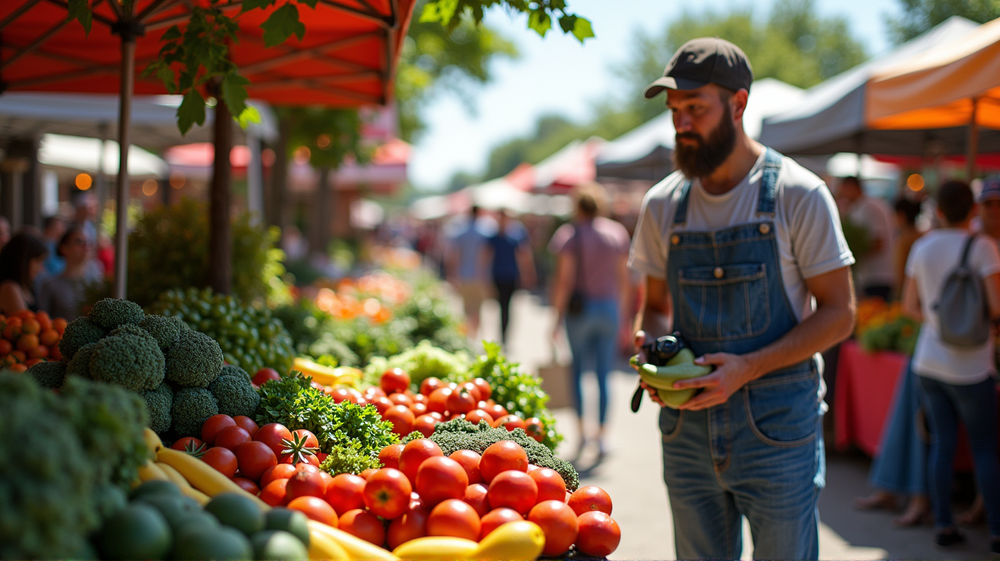Springtime in Denver is a season cherished for blossoming flowers and burgeoning local activities, none more anticipated than the farmers markets. As the stalls unfurl and locals flock to engage with small producers, a blend of stories from vendors unveils a landscape of both opportunity and challenge.
A Decade of Direct Sales: The PB Love Company
Mario Esparza of PB Love Company, known for his handcrafted nut butters, stands as a testament to the core philosophy of selling directly to the people. “Selling direct is how we started,” he fondly shares. For over a decade, Esparza has navigated the peaks and valleys of market dynamics, a journey that’s recently seen shifts due to national economic policies.
The Tariff Tremor
Esparza has felt the tremors of tariffs, particularly when it comes to ingredients sourced beyond local borders. Bamboo spoons, normally a staple in his merchandise, have seen a setback due to tariffs on Chinese imports. This story highlights the interconnectedness and fragility of supply chains, even at a small-business level.
Labor Over Tariffs: The Kiowa Valley Perspective
Meanwhile, other vendors tell a different tale. David Ripey of Kiowa Valley Organics shares, “Our biggest challenge is labor.” In this narrative, tariffs take a backseat to workforce issues, suggesting a diverse array of challenges for the small-scale farmers in the area. For Steve Cockroft of Croft Family Farm, the story mirrors Ripey’s, underscoring a varied impact of broader economic shifts.
Preparing for the Ripple Effects
As the season continues, vendors are wary yet optimistic. “It may only be a matter of time before economic policies start to ripple through the supply chains,” notes Esparza. His advice to small businesses echoes a common sentiment: cautious sourcing is key, but adaptability in these ever-changing times is paramount.
According to CBS News, these stories and perspectives forge a hopeful yet realistic image of Denver’s beloved farmers markets as they bloom anew this spring.












